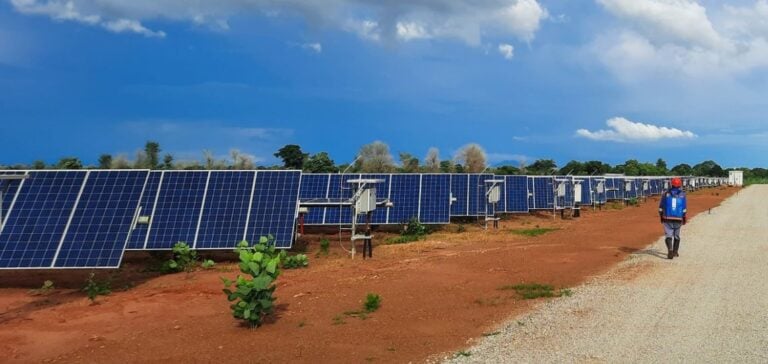Africa50 joins 13 other investors in IRENA’s Energy Transition Accelerator Financing (ETAF). This partnership, signed by Alain Ebobissé and Francesco La Camera, aims to support clean energy infrastructures in Africa, notably through a $100 million financing package. Renewable infrastructure projects are proliferating in Africa, as in the case ofAMEA Power, which has opted for solar power in South Africa.
A Commitment to Energy Transition
Africa50, a pan-African investment platform, joinsIRENA‘s Energy Transition Accelerator Financing (ETAF), an initiative supported by various investors. This partnership, formalized on the sidelines of the OPEC Fund for International Development (OFID) Development Forum in Vienna, marks a turning point in the financing of renewable energies in Africa.
The $100 million committed by Africa50 will be used to finance and co-finance energy transition and renewable energy infrastructure projects across Africa. Launched three years ago with the support of the United Arab Emirates, the ETAF platform aims to implement the Nationally Determined Contributions (NDCs) of developing countries, by deploying clean energy solutions.
Sustainable Development Goals and Emission Reductions
The main aim of this partnership is twofold: to reduce carbon emissions and accelerate economic development on the African continent. After signing the agreement, Alain Ebobissé stressed the importance of this initiative in achieving carbon neutrality and creating a more sustainable future for Africa.
In addition to Africa50, the ETAF platform is supported by a number of donors and international financial institutions, including OFID, the Abu Dhabi Fund for Development (ADFD), the Inter-American Development Bank (IDB), the European Bank for Reconstruction and Development (EBRD), the Emirates Development Bank (EDB), the Asian Infrastructure Investment Bank (AIIB) and the International Finance Corporation (IFC), the private sector arm of the World Bank Group. Among the energy producers involved, Masdar of the United Arab Emirates also plays a crucial role.
Future prospects and challenges
Africa50’s commitment to the ETAF platform represents a significant step forward for the financing of sustainable energy projects in Africa. Investment in renewable infrastructure is essential to meet the continent’s growing energy needs, while respecting global environmental objectives.
The future of renewable energies in Africa depends on the continued mobilization of funds and partnerships like this one. The support of international institutions and private investors is crucial to ensure the success of these projects and to promote long-term sustainable development.






















